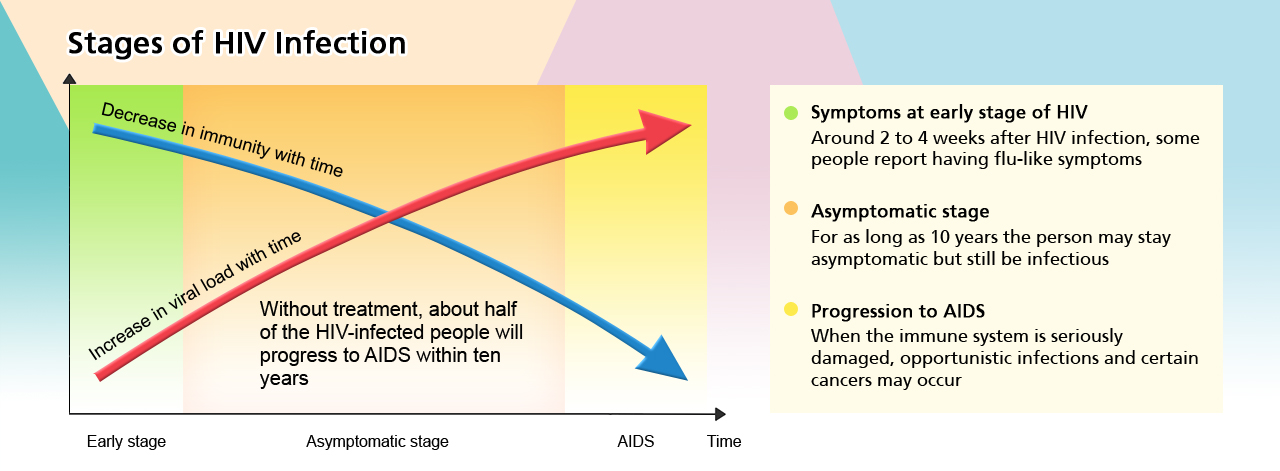
Around 2 to 4 weeks after HIV infection takes place, the symptoms can occur as the body is reacting to the virus. Some people who are infected with HIV report having flu-like symptoms (often described as "the worst flu ever"). Symptoms can include: fever, tiredness, sore throat, rash, diarrhoea and swollen glands. They may last for a few days to several weeks.
During this time (window period), HIV infection may not show up on an HIV antibody test, but the person is highly infectious and can spread the virus to others. However, you should not assume you have HIV if you have any of these symptoms. Each of these symptoms can be caused by other illnesses. You need to consult a doctor and have an HIV test.
At this stage, HIV may not cause any other symptoms for as long as ten years or so. However, the virus will still be active. It can destroy more CD4 cells and making copies of itself. HIV can still be passed on during this stage. If left untreated, over time, HIV infection will cause severe damage to the immune system.
If you have HIV and you are not taking HIV medication, the virus will eventually weaken your body's immune system. As the system is seriously damaged, the infected person is more vulnerable to certain cancers and a wide range of infections. These types of infections are known as opportunistic infections (OIs) because they take advantage of a person's weakened immune system. When that happens, HIV infection has progressed to its final stage which is commonly known as AIDS. On average, 50% of HIV infected adults progress to AIDS in 10 years' time without treatment.